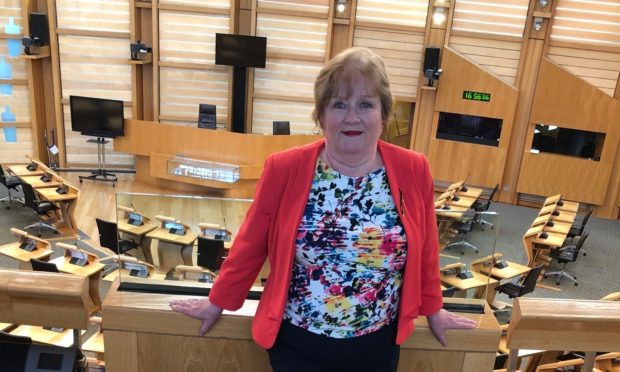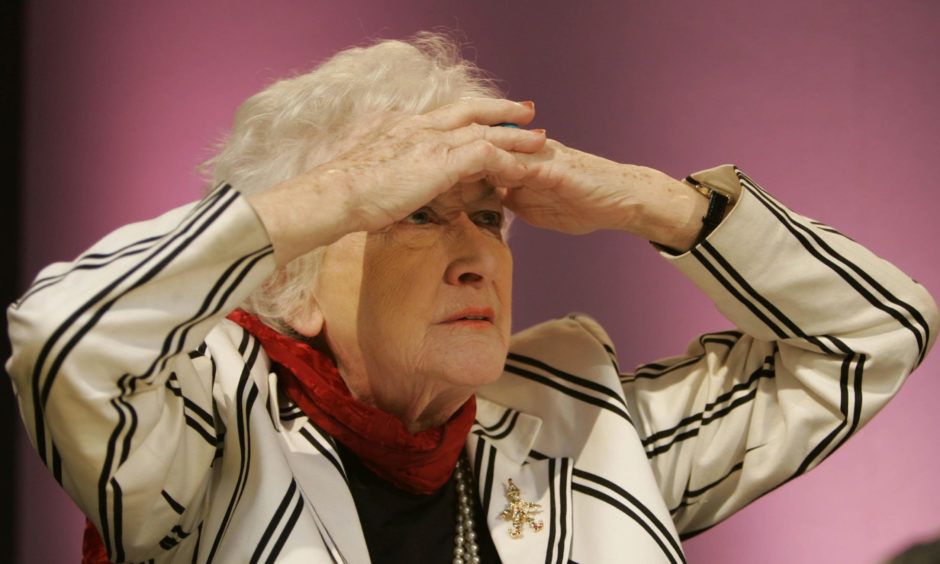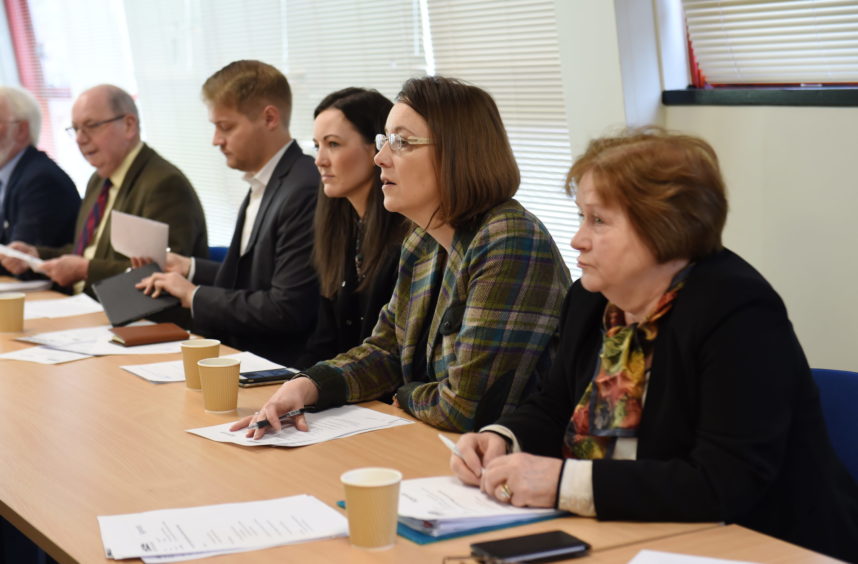It was influential SNP politician Winnie Ewing who first inspired Aberdeen South and North Kincardine MSP Maureen Watt to consider a career in politics, back in 1974.
Ms Watt, who has announced she will not stand for re-election to Holyrood in 2021, may be the daughter of the late SNP MP Hamish Watt, who represented Banffshire between 1974 and 1979, but it was the former SNP president, Ms Ewing, nicknamed Madame Ecosse, who would persuade the Aberdeen MSP to enter the political fray.
The 69-year-old said: “There was quite a lot of discussions round the tea table but, in actual fact, it was Winnie Ewing who when I first met her said, ‘Get involved, Maureen, we need more women’ in the party and in politics at that time, which was 1974.
“Seeing my dad in Westminster certainly made me realise that the debating we’d learned at Keith Grammar was as important and as good as any debate in the House of Commons.”
Ms Watt, whose son Stuart Donaldson, also served as an MP for West Aberdeenshire and Kincardine, from 2015 to 2017, said she thinks her family is the only one to have three generations serve as politicians within the SNP.
But added: “I think the Ewings beat us on numbers but in terms of generations it’s us.”
The famous Ewing family also consists of Winnie’s son Fergus Ewing, MSP for Inverness and Nairn, his late wife Margaret, who previously served as an MSP, and his sister Anabelle, MSP for Mid-Scotland and Fife.
Ms Watt told her constituency association of her decision to stand down earlier this week, stating that as she will be nearly 75 by the end of the next term, “the time is right for another woman” to take on the role.
The SNP politician said: “I’m feeling very fit and healthy but just thinking about another five-year stint in your 70s, although it seems to be okay for presidential candidates, it’s not something I thought was a good idea.
“I didn’t want to be around here when I’m approaching 75.”
The SNP is using all-women shortlists to choose candidates in constituencies where the current SNP MSP is standing down.
The former SNP minister said: “I think women have more than proven their worth and capabilities in this parliament and it’s important that we see a large number of women from the north-east.”
Following Ms Watt’s announcement, the First Minister said the SNP politician had been a “friend, colleague and inspiration” to her.
Other colleagues, including Aberdeen South MP Stephen Flynn, who previously worked for Ms Watt, have spoken of the guidance she has provided them.
I don’t remember a time in @theSNP when @maureenSNP hasn’t been there as a friend, colleague and inspiration. She’ll be hugely missed in @ScotParl https://t.co/fREq1yjMNy
— Nicola Sturgeon (@NicolaSturgeon) September 7, 2020
The 69-year-old, who previously worked as a social studies teacher and in the oil sector, attributes this to the “teacher and HR specialist” in her.
She added: “It’s been very gratifying to see people who have worked for me or people that I’ve campaigned alongside have gone on to become candidates and elected members themselves.”
The MSP was appointed the Scottish Government’s Mental Health Minister in May 2016 for two years – a first for the UK, and potentially Europe and further afield, Ms Watt has learned.
Despite the prominent appointment, children and young people across Scotland, and specifically the Grampian and Tayside regions, have suffered in recent years from long waits to access the Child and Adolescent Mental Health Service (CAMHS).
In terms of what needs to be done to tackle lengthy delays for an appointment, Ms Watt said the government’s 10-year strategy will see counsellors, psychologists and psychiatrists trained up.
She added: “Early intervention is really important. There are probably people on that waiting list that don’t need the level of intervention that you would get in a CAMHS situation and that if they talked to a counsellor at school or through their GP service, who are now, more and more, coming into position, that could help reduce the waiting list.”
Other achievements Ms Watt is proud of include her time serving as Minister for Public Health, where she set up Food Standards Scotland with its headquarters in Aberdeen and launched the Out of Hospital Cardiac Arrest strategy, which has seen half a million Scots trained in CPR.
She was also the first MSP to swear their oath of allegiance in Doric, when she was first elected to the Scottish Parliament in 2006, and eventually embedded the use of Gaelic, Scots and Doric in the Curriculum for Excellence.
The SNP MSP feels “very sad” to be stepping down and with the prospect that she will not be in parliament to potentially see her long-held dream of Scotland becoming independent.
She said: “But we’re so close and it will just take another generation to get us across the line but I’ll be playing my part in other ways.
“I’ll still be very much involved locally and in campaigning. I’d like to get my garden sorted out and perhaps travel.”
And what will the SNP politician miss the most?
“The ability to help people. People think that standing up in parliament and making the great speeches is satisfying but actually helping somebody get their operation on time or get a house or things like is immensely satisfying.”


